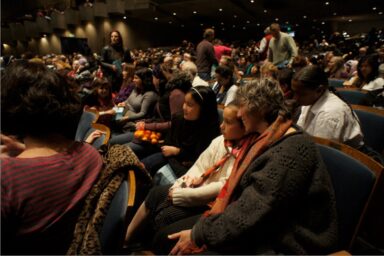The Potential of a Systems Perspective
Abstract: Access to arts education in the United States continues to be inequitably distributed as a function of socioeconomic status and race. In response, arts practitioners and policymakers have worked to expand access to arts education among children from lower-income households and racially or ethnically minoritized (REM) backgrounds. In so doing, they have also adapted to the current era of assessment and accountability in education by framing arts education as a boon to these students’ development in extra-artistic domains. However, focusing on extra-artistic benefits as the key outcomes of arts education for children from lower-income households and REM backgrounds unnecessarily narrows the argument for arts education. It also has the potential to create inequitable expectations about what benefits children from different backgrounds “should” realize through their participation in arts education programs, and, by extension, what goals programs serving children from different backgrounds “should” be pursuing. In this paper we explore the power of a systems perspective to develop a wider, more holistic, and more equitable set of expectations for arts education’s potential benefits. We conclude by offering recommendations for how researchers, practitioners, and policymakers can leverage the cultural traditions of REM children, families, and communities to expand access to arts education.



